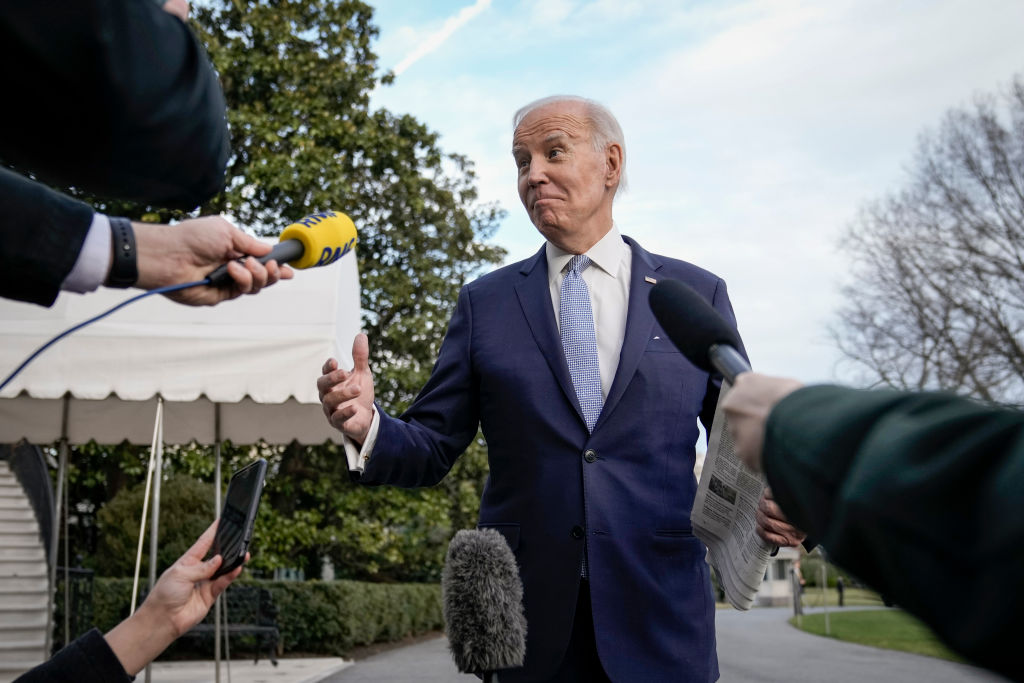One of President Joe Biden’s major promises is on the line as the Supreme Court considers whether it is legal.
On Tuesday, the high court heard arguments about the legality of Biden’s student loan forgiveness plan, and the conservative justices appeared skeptical of it.
The Washington Post editorial board wrote in an editorial published on Wednesday that Biden “overreached” with his plan. However, it argued the Supreme Court “shouldn’t stop him.”
“The policy is expensive and ill-targeted, and made worse by the fact that Mr. Biden failed to get congressional approval for the $400 billion initiative,” the editorial stated. “While we have criticized the Biden plan as a regressive and expensive mistake, we also believe it would be an overreach for the justices to strike it down. There are limits that restrict when and how the court can exercise its authority — and this is one of the instances in which it should recognize those limits.”
Biden’s debt forgiveness revolves around the 2002 Heroes Act, which gives the executive branch the ability to “waive or modify” student loan provisions in an emergency.
“But Mr. Biden’s student debt forgiveness scheme is far more expansive — and a questionable reading of the two-decade-old law,” the editorial argued.
Still, it pointed out the challengers of the plan lack standing:
“Some of Tuesday’s arguments revolved around MOHELA, a loan-servicing corporation created by the state of Missouri. Missouri sued on behalf of the loan-servicer, arguing that it was effectively a state entity. In fact, the state created MOHELA to be a financially independent operation, meaning any losses it incurred under the Biden plan would not impact the state.”
It added, “(MOHELA itself might have had a right to sue, but it declined to do so.) The other challengers’ arguments for their standing are even weaker.”
The Post also noted standing is a “core judicial principle that courts may only consider cases in which a party is harmed and objects to it.” And it raised concerns an “unconstrained court would invite waves of lawsuits from people seeking favorable rulings on disputes in which they have no stake.”
Finally, the editorial suggested Congress should clarify the Heroes Act to state it does not give the Biden administration the power to “offer such poorly targeted loan forgiveness.” Additionally, it said lawmakers should “review the long list of emergency powers they have given the executive branch over the decades, curbing or eliminating those that are unclear or unneeded.”
The scheme was a clever attempt to accomplish a promise to make a bunch of mostly younger voters happy by wiping away parts of the loans — for an estimated 14.6 million people, it would take care of their entire loan balance.
If you are a conservative, somebody who paid for college, or someone who paid off your college debt, you probably despise this plan. It does have a flimsy legal foundation. And, because it is not a law, it has also given the administration the ability to change the plan essentially whenever it wishes — which is also not good.
Student loan forgiveness should be done through legislation clearly aimed at wiping away debt — not wildly expanding another law’s intention.
But this issue here is one of standing and having to prove the states bringing the legal challenge have grounds to do so.
Some conservatives have argued it is in line with the law of standing to let states sue on behalf of a state agency to challenge the debt plan. But if Missouri’s independent loan servicer believes it has incurred injury, it should sue. And as The Post noted, it has not.
Conservatives may despise the plan, but you cannot solve one type of overreach by hoping for another. Two wrongs do not make a right.
The Supreme Court cannot be the institution that settles all hot-button issues because legislators are too cowardly or dysfunctional to do their job and pass or try to change laws. The legislature must assert its authority in the face of executive overreach and keep the president in check.
























 Continue with Google
Continue with Google